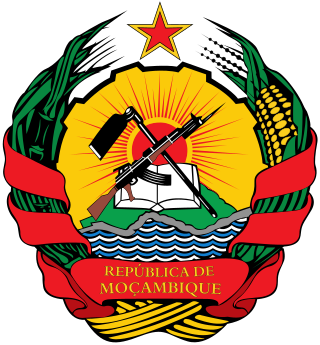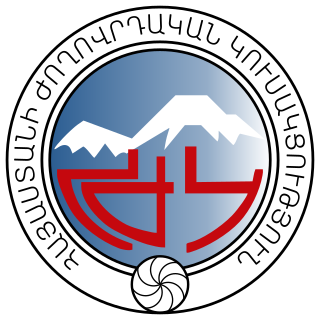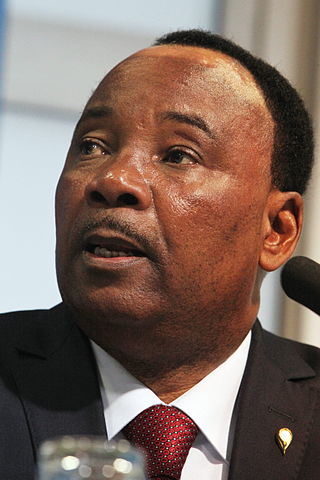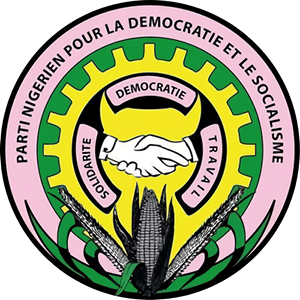
Politics in Mozambique takes place in a framework of a semi-presidential representative democratic republic, whereby the President of Mozambique is head of state and head of government in a multi-party system. Executive power is exercised by the government. Legislative power is vested in both the government and the Assembly of the Republic.

The National Advancement Party was a conservative political party in Guatemala. It was founded in 1989.

Liberal Alliance of Montenegro was a Montenegrin separatist, liberal and anti-war political party, active between 1990 and 2005. The Liberal Alliance was a full member of the Liberal International from 1994 until the party's dissolution in 2005.

Elections in Benin take place within the framework of a multi-party democracy and a presidential system. Both the President and the National Assembly are directly elected by voters, with elections organised by the Autonomous National Electoral Commission (CENA).

Elections in the Comoros take place within the framework of a multi-party democracy and a presidential system. The President and the majority of the seats in the Assembly of the Union are directly elected.

Elections in Niger take place within the framework of a semi-presidential system. The President and National Assembly are elected by the public, with elections organised by the Independent National Electoral Commission (CENI).

The People's Party of Armenia is a socialist political party in Armenia.

Presidential elections were held in Chile on 12 December 1999, with a second round on 16 January 2000.

Mahamadou Issoufou is a Nigerien politician who served as the president of Niger from 7 April 2011 to 2 April 2021. Issoufou was the prime minister of Niger from 1993 to 1994, president of the National Assembly from 1995 to 1996, and a candidate in each presidential election from 1993 to 2016. He led the Nigerien Party for Democracy and Socialism (PNDS-Tarayya), a social democratic party, from its foundation in 1990 until his election as president in 2011. During the presidency of Mamadou Tandja (1999–2010), Issoufou was the main opposition leader.

The Rally for Democracy and Progress is a political party in Niger, led by Hamid Algabid. It was established as the ruling party during the presidency of Ibrahim Baré Maïnassara.

The Nigerien Alliance for Democracy and Progress is a political party in Niger. Moumouni Adamou Djermakoye led the party from its foundation in 1992 until his death in 2009.

The Nigerien Party for Democracy and Socialism is a political party in Niger. It is a broadly left-leaning party, part of the Socialist International; it came to power in 2011 following the election of the former long-time leader Mahamadou Issoufou. Mohamed Bazoum is the former president of the party and the former Secretary-General is Foumakoye Gado.

The Central African Democratic Rally is a political party in the Central African Republic.

Legislative elections were held in France on 10 June and 17 June 2007 to elect the 13th National Assembly of the Fifth Republic, a few weeks after the presidential election run-off on 6 May. 7,639 candidates stood for 577 seats, including France's overseas possessions. Early first-round results projected a large majority for President Nicolas Sarkozy's Union for a Popular Movement (UMP) and its allies; however, second-round results showed a closer race and a stronger left. Nevertheless, the right retained its majority from 2002 despite losing some 40 seats to the Socialists.

The 1999 Louisiana gubernatorial election was held on October 23, 1999, incumbent Republican Mike Foster won reelection to a second term as governor of Louisiana becoming the first Republican to ever do so.

General elections were held in Ghana on 7 December 2000, with a second round of the presidential election on 28 December.

General elections were held in Uruguay on 31 October 1999, alongside a double referendum, with a second round of the presidential election on 28 November. The elections were the first in Uruguay since World War I that were not dominated by the Colorado Party and the National Party. The Broad Front had begun gaining popularity in 1994, and had become a key player in Uruguayan politics by 1999.

General elections were held in Niger in 1999; the first-round of the presidential elections was held on 17 October, with a run-off held alongside National Assembly elections on 24 November. The elections followed a coup d'état on 9 April, in which Ibrahim Baré Maïnassara, who had led an earlier coup in January 1996 and won disputed presidential elections, was assassinated. Coup leader Daouda Mallam Wanké initiated a transitional period that concluded with the victory of Mamadou Tandja, the candidate of the National Movement for the Society of Development (MNSD), over Mahamadou Issoufou, the candidate of the Nigerien Party for Democracy and Socialism (PNDS), in the run-off. The vote for the first National Assembly of the Fifth Republic, which had originally been scheduled for October, but delayed in August, also saw a victory for the MNSD, which won 38 of the 83 seats. It formed a coalition with the Democratic and Social Convention in order to gain a majority in the Assembly.

Presidential elections were held in Benin in March 1991, the first direct presidential elections since 1970. Elections under the military regime of Mathieu Kérékou had been indirect, with the president chosen by the National Assembly.

General elections were held in Uruguay on 26 October 2014, alongside a constitutional referendum. As no presidential candidate received an absolute majority in the first round of voting, a runoff took place on 30 November. Primary elections to determine each party's presidential candidate had been held on 1 June.


















